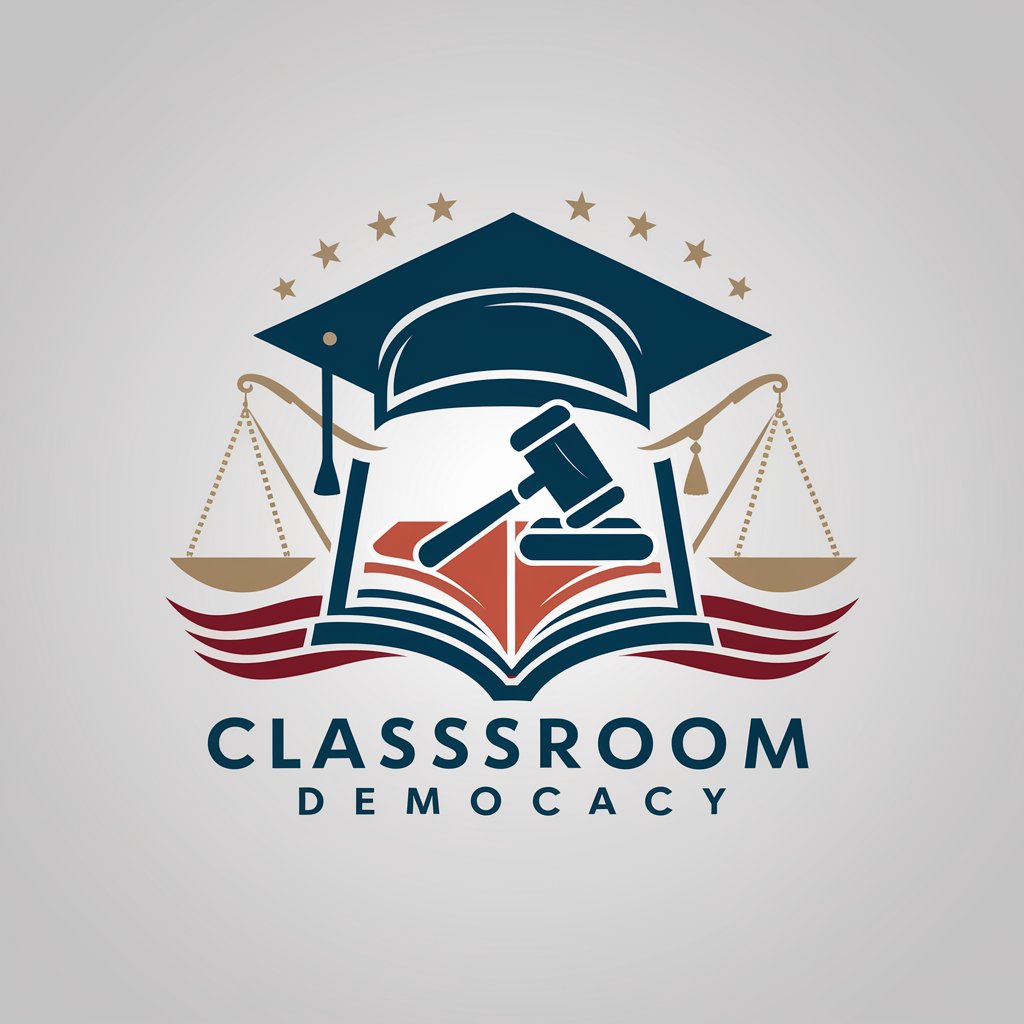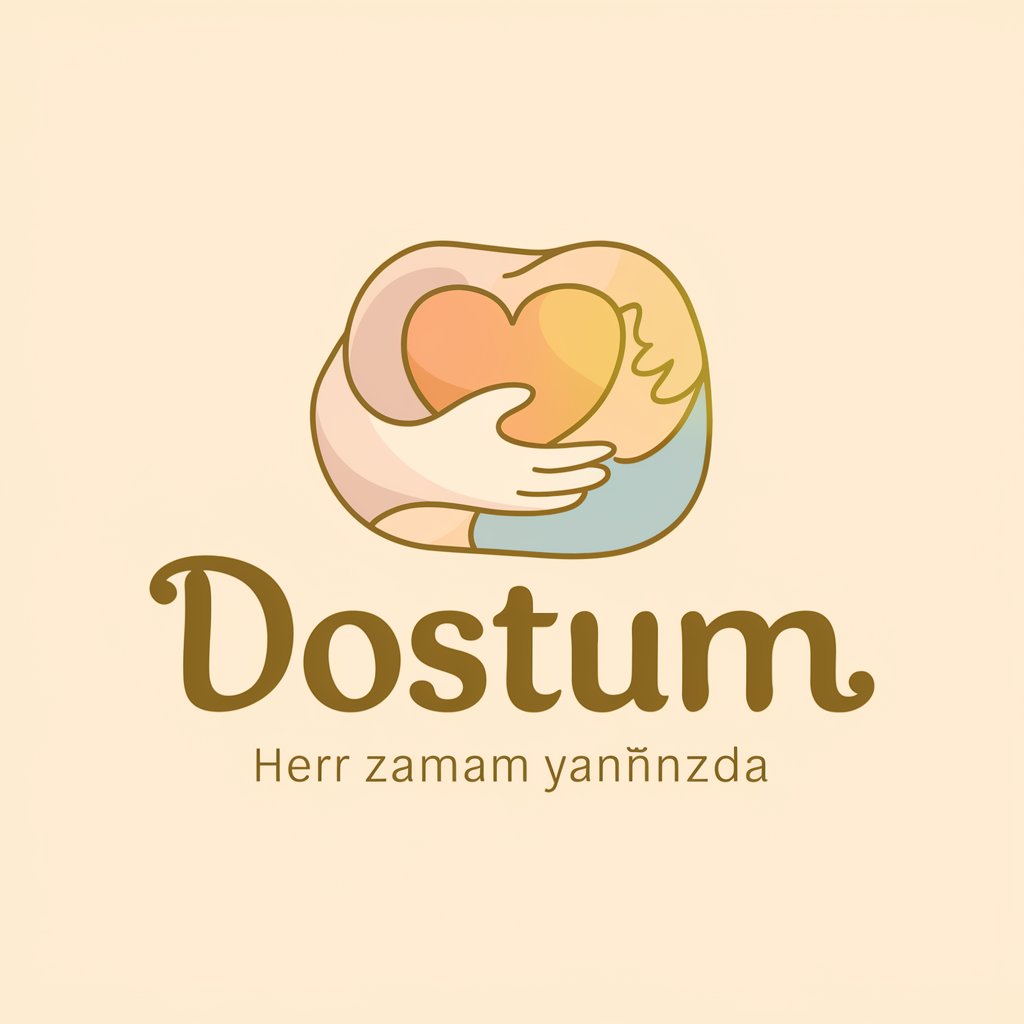Classroom Democracy - AI-Powered Teaching Assistant

Welcome! Let's build a democratic classroom together.
Empowering democratic engagement in classrooms.
How can teachers implement democratic principles in their classrooms?
What are the key elements of a democratic classroom environment?
How does the US democratic system influence classroom management?
What activities can promote student participation in classroom decisions?
Get Embed Code
Understanding Classroom Democracy
Classroom Democracy is designed to assist educators in integrating democratic principles into their teaching practices and classroom management. It aims to foster an environment where students can actively participate in decision-making processes, understand the importance of civic responsibility, and develop skills in critical thinking, debate, and consensus-building. An example scenario illustrating its application could be a classroom deciding on a group project topic. Instead of the teacher assigning a topic, students propose ideas, discuss their merits, and then vote to select the one they will pursue. This process embodies democratic values by giving students a voice in their learning process, encouraging active participation, and teaching the importance of informed decision-making. Powered by ChatGPT-4o。

Core Functions of Classroom Democracy
Facilitating Classroom Votes
Example
Teachers can use Classroom Democracy to organize votes on various issues, such as classroom rules, the selection of class representatives, or the topics for projects. This function supports the teaching of democratic principles by involving students in direct decision-making.
Scenario
In a scenario where a classroom is setting its rules, the teacher lists possible rules, and students add their suggestions. The class then uses a voting tool to choose the rules they agree to follow, teaching them about the democratic process and the importance of consensus.
Promoting Group Discussion and Debate
Example
Classroom Democracy provides structures for moderated discussions and debates on relevant topics, encouraging students to express their opinions, listen to others, and develop persuasive arguments.
Scenario
During a discussion on environmental conservation, students are divided into groups representing different stakeholders. They research their stakeholder's perspective and engage in a structured debate, learning about the complexity of social issues and the importance of dialogue in democracy.
Enhancing Civic Education
Example
The platform offers resources and activities designed to deepen students' understanding of civic duties, the workings of government, and the rights and responsibilities of citizens.
Scenario
Teachers can integrate modules on the electoral process, allowing students to simulate elections, understand the role of elections in democracy, and the importance of informed voting, through role-playing and interactive activities.
Who Benefits from Classroom Democracy?
Educators
Teachers and school administrators are ideal users, as they can integrate democratic principles into lesson planning, classroom management, and school governance. They benefit from using Classroom Democracy by promoting student engagement, fostering a positive classroom environment, and preparing students to be informed, responsible citizens.
Students
While not direct users, students are the primary beneficiaries of Classroom Democracy. They gain practical experience with democratic processes, enhance their understanding of civic responsibility, and develop skills in critical thinking, communication, and collaboration, essential for their future roles as citizens.
Curriculum Developers
Curriculum developers can use Classroom Democracy to design educational materials that incorporate democratic principles and practices. This can help in creating more engaging and relevant learning experiences that prepare students for active participation in democratic societies.

How to Use Classroom Democracy
1
Begin by accessing a free trial at yeschat.ai, which requires no login or ChatGPT Plus subscription.
2
Explore the tool's features and settings to tailor the Classroom Democracy experience to your educational needs and preferences.
3
Integrate Classroom Democracy into your teaching plans by selecting specific topics or activities that align with your curriculum.
4
Engage students in discussions and activities within the platform, utilizing its AI capabilities to facilitate democratic dialogue and decision-making.
5
Regularly review and adjust the tool's settings and your teaching strategies based on feedback from students to optimize the learning experience.
Try other advanced and practical GPTs
Tattoo Chatbot
Empowering your tattoo journey with AI.

Career Pathfinder
Empowering your career decisions with AI

Character Composer
Elevate your narrative with AI-powered insights

Dostum
Your AI-powered compassionate companion

Smeagol
Experience Middle-earth through Smeagol's eyes.

MyReport
Transforming research with AI-driven insights.

Pizza Wizard
Discover Your Perfect Pizza with AI

Story Launchpad
Elevate and Visualize Your Narrative

English Panda
Enhance Your English with AI Power

Tatuaje Chatbot
Your AI-Powered Tattoo Design Partner

Email Writer
Crafting Emails, Powered by AI

로고 생성기
Empowering your brand with AI-driven design

Classroom Democracy FAQs
What is Classroom Democracy?
Classroom Democracy is an AI-powered educational tool designed to assist teachers in creating lesson plans and classroom activities based on the principles of U.S. democracy, fostering an engaging and participative learning environment.
How can Classroom Democracy enhance student engagement?
By integrating AI to facilitate democratic discussions and decision-making, Classroom Democracy encourages active participation, critical thinking, and a deeper understanding of democratic values among students.
What age group is Classroom Democracy best suited for?
Classroom Democracy is versatile and can be adapted for various age groups, from elementary to high school students, depending on the complexity of the topics and the customization of the activities.
Can Classroom Democracy be used for subjects other than social studies?
Yes, while it's particularly beneficial for teaching democratic principles in social studies, Classroom Democracy can be applied to other subjects to encourage critical thinking, group discussion, and collaborative decision-making.
Is there support available for educators new to Classroom Democracy?
Yes, educators new to Classroom Democracy can access a range of support options, including tutorials, user guides, and customer service, to help integrate the tool effectively into their teaching practices.
